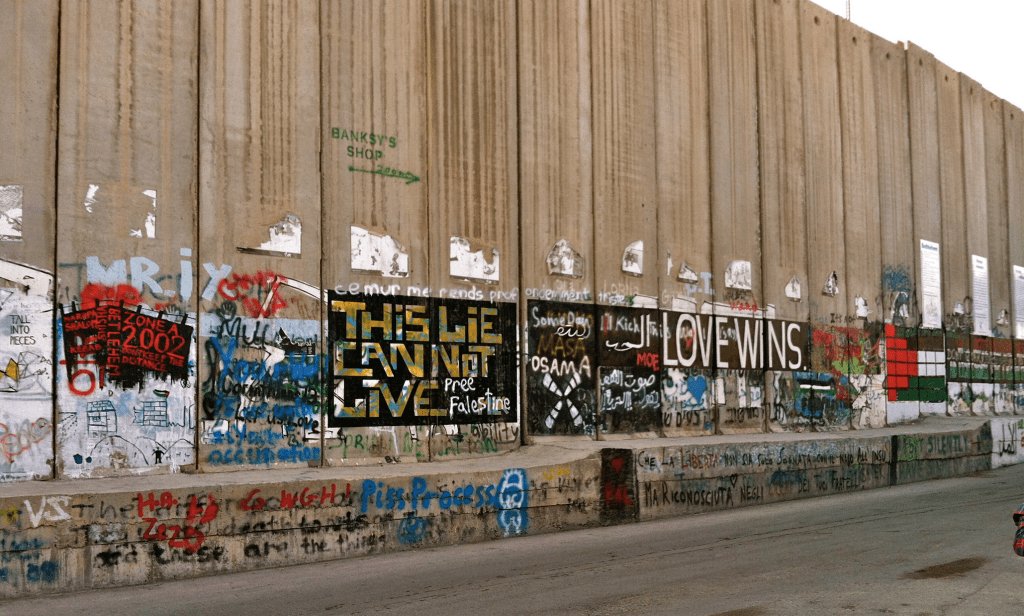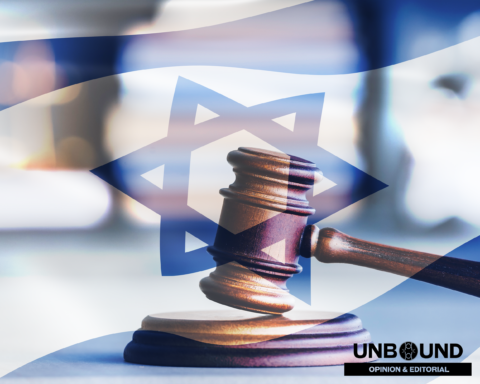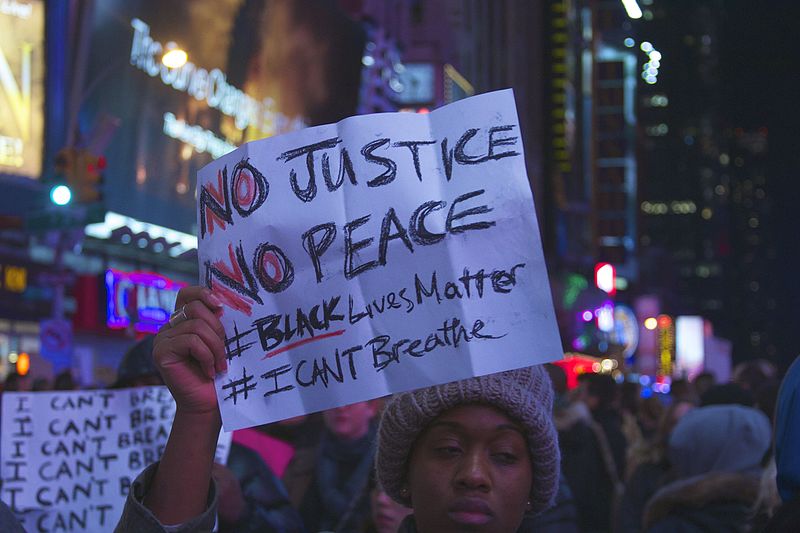Working for Peace in the Middle East at the 222nd General Assembly

About a month ago, I was sitting in a large ballroom adjacent to other commissioners and delegates to the 222nd General Assembly, anxiously waiting for the work of the Committee on Middle East Issues (Committee 8) to begin. In my anxiousness, I found myself lost in memories, replaying experiences of walking the dusty streets of the West Bank in my own recent trip to the Middle East. I remembered…
- Holding the hands of a Bedouin woman who had recently lost her home for the fourth time to Caterpillar bulldozers operated by the Israeli military.
- Sharing steaming hot maqloobah with the Nassar family after planting trees on a hillside at the Tent of Nations.
- Seeing children run from Israeli soldiers in tanks as the air filled with tear gas at the Aida Refugee camp in Bethlehem.
- Touring an illegal Israeli settlement in Hebron and walking down the main street of town, which is off-limits to Palestinians.
- Touching the cold concrete surface of the Occupation wall in Bil’in…and Jerusalem…and Bethlehem.
- Meeting with young Israeli peace activists, who spoke with confident expectation about a united society where all would be recognized and given rights.
Holding all of these memories – these stories of hardship and hope, these images of oppression and pain – has proved challenging over the last two and a half years. There are days when I wish I knew nothing about Israel or Palestine, when the burden of knowing what I know is nearly too much to bear. And yet, as a person of privilege, I have been given a voice to share what I have witnessed, to advocate for change and to stand in solidarity with people who are oppressed. In the case of Israel and Palestine, this includes people I now know by name.
___________________________________________
There are days when I wish I knew nothing about Israel or Palestine, when the burden of knowing what I know is nearly too much to bear. And yet, as a person of privilege, I have been given a voice to share what I have witnessed.
___________________________________________
My random assignment as a Theological Student Advisory Delegate to the Committee on Middle East Issues at the 222nd General Assembly felt like a stroke of good luck, as well as an opportunity to continue to share these stories.

Two years ago at the 221st General Assembly, alongside other Presbyterians, Jews, and Muslims, I advocated for the PC(USA) to divest funds from three American companies complicit in the Israeli occupation of the West Bank: Hewlett Packard, Caterpillar, and Motorola Solutions. This issue had previously come before the 220th General Assembly in 2012, where it lost by a margin of 2 votes. When divestment successfully passed in June 2014, I wept tears of joy, proud to be part of a denomination that refused to be intimidated in the face of injustice.
The 2014 divestment decision provided a solid foundation for continuing work on these issues, and the 222nd General Assembly acted accordingly by reaffirming the church’s commitment to naming injustice in Israel and Palestine and calling for an end to the violence. I am pleased both with the overtures that passed and with the way the committee worked together. Many people on the committee held differing opinions regarding the political realities and solutions for peace in Israel and Palestine, and all of these viewpoints were presented and heard. Small group discussions helped commissioners and delegates get to know one another and become more familiar with the issues at hand.
Even as a few superfluous amendments not germane to the overtures themselves were proposed, the committee stayed focused on the task at hand and was not distracted by attempts to move the conversation away from immediate justice. Additionally, our committee was excellently staffed from the moderators and parliamentarian to the resource persons.
___________________________________________
Allan Boesak spoke to the inherent connections between Black Lives Matter, the nonviolent resistance movement in South Africa, and the nonviolent work – including the BDS movement – being done in Palestine.
___________________________________________
By the end of our deliberations, we voted to recommend the following actions to the plenary, where all of these actions were approved:
- Approve 08-02: On Advocating for the Safety and Well-being of Children of Palestine and Israel. This important overture names the particular abuses suffered by Palestinian children, and calls on the PC(USA) to affirm and demand ratification of the United Nations Convention on the Rights of the Child.
-

The Occupation Wall in Bethlehem. Approve 08-03: On Upholding Peoples and Partners in the Middle East and in the United States, which calls for continuing to partner with churches in the region to support peace-building efforts.
- Approve 08-04: On Calling for the RE/MAX Corporation to Cease Selling Property in West Bank Settlements. This overture was amended to commend the work of RE/MAX in responding favorably to conversations with PC(USA) representatives, while still calling for RE/MAX to “stop facilitating the sale and rental of property in Israeli settlement colonies in East Jerusalem and the West Bank.”
- Approve 08-07: On Prayerfully Considering the Palestinian Civil Society Call for Boycott, Divestment and Sanctions. The PC(USA) has a long history of utilizing boycotts and divestment strategies as a means of nonviolent resistance. This overture asks congregations and individuals to study and consider the BDS Call, particularly in light of the endorsement of BDS by our mission partners.

Additionally, the committee and subsequently the plenary passed an excellent, comprehensive report 08-06: For Human Values in the Absence of a Just Peace, written by the Advisory Committee on Social Witness Policy. This important document is the result of two years of meetings and conversations with representatives from the UN, mission partners, and many people on the ground in Israel and Palestine. It is incredibly well-researched and sourced and provides an honest and challenging evaluation of the situation. Additionally, the report utilizes solid Reformed theology and embodies the positive ideals of Presbyterian missiology by affirming solidarity with mission partners on the ground rather than prescribing solutions. [1] The harsh reality behind the stories that I hold so close is reflected in this report, and I hope that it will continue to guide our action going forward. Please take the time to read it if you have not already!
Despite our work as a church, the occupation of the West Bank and Gaza continue, and thus justice has not been realized. As the PC(USA) continues to be a voice for this justice, I hope we will build on the work we have done by considering the following:
- Intersectionality is essential. At a panel discussion hosted by Presbyterian Peace Fellowship (PPF), Allan Boesak (who was attending GA to celebrate our denomination’s adoption of the Confession of Belhar) spoke to the inherent connections between Black Lives Matter, the nonviolent resistance movement in South Africa, and the nonviolent work – including the BDS movement – being done in Palestine. As we move forward, it is essential to recognize the ways in which oppression is connected and to call for justice in all realms. Rev. Osagyefu Uhuru Sekou, who spoke at the PPF breakfast event, also named this need for intersectionality. You can watch his full speech here: https://www.youtube.com/watch?v=8X-7SXPDXYo.
-

Talk at the Presbyterian Peace Fellowship Booth, featuring a representative from Black Lives Matter Portland, Elna Botha and Allan Boesak from South Africa, and Rev. Sekou. People need to see things for themselves. Every year at General Assembly, we assign commissioners and advisory delegates to the Middle East committee and expect them to make significant decisions regardless of whether or not they have any prior knowledge related to these issues. It takes a long time to learn about the nuances and complexities of the history of Israel and Palestine, and, due in large part to the way these issues are presented and discussed in the United States, many American (including many Presbyterians) have significant gaps in of knowledge of the basic facts on the ground. If the PC(USA) wants to continue to speak prophetically in this area, we need to send more people to visit the West Bank, to meet and listen to our mission partners, to witness to the situation, and to collect stories to bring back. Congregations, presbyteries, seminaries, and other groups need to financially support these kinds of experiences and encourage people traveling to the Middle East to get the full story rather than merely visiting historical sites.
- BDS (Boycott, Divestment and Sanctions) is a movement that deserves to be studied and considered as legitimate. There were many attempts at this General Assembly to slander BDS, and yet all of our mission partners endorse it as a legitimate and powerful tool to nonviolently resist the occupation. The PC(USA) has already selectively advocated for sanctions and engaged in boycotts and in divestment. It is a form of nonviolent witness we have employed for over a century, and it is worth learning more about BDS as we move forward. Even if we choose not to formally endorse the BDS Movement, the continued slandering of the movement by individual Presbyterians or the denomination as a whole blatantly disrespects the right of our Palestinian mission partners to self-determination.

So, keep it up PC(USA)! Let’s continue to work for peace and justice for all people in the Middle East, always educating ourselves and listening to the stories of the oppressed and marginalized. We are a voice crying out on behalf of those experiencing difficulty and despair, and we have an obligation to use the power we have been given to struggle for justice.
______________________________
[1] See commendation by PPF here: https://justiceunbound.org/carousel/a-pathway-to-just-peace-in-israelpalestine/

AUTHOR BIO: Jessie Light is an M.Div. at Austin Seminary and is currently interning at North Decatur Presbyterian in Atlanta. Prior to seminary, she worked with youth and social justice ministries at Village Presbyterian Church in Prairie Village, KS. She is an active member of the Presbyterian Peace Fellowship and traveled to Israel/Palestine in January 2014.
Read an action summary for all items in Committee 8: The Committee on Middle East Issues.






Unbound Social